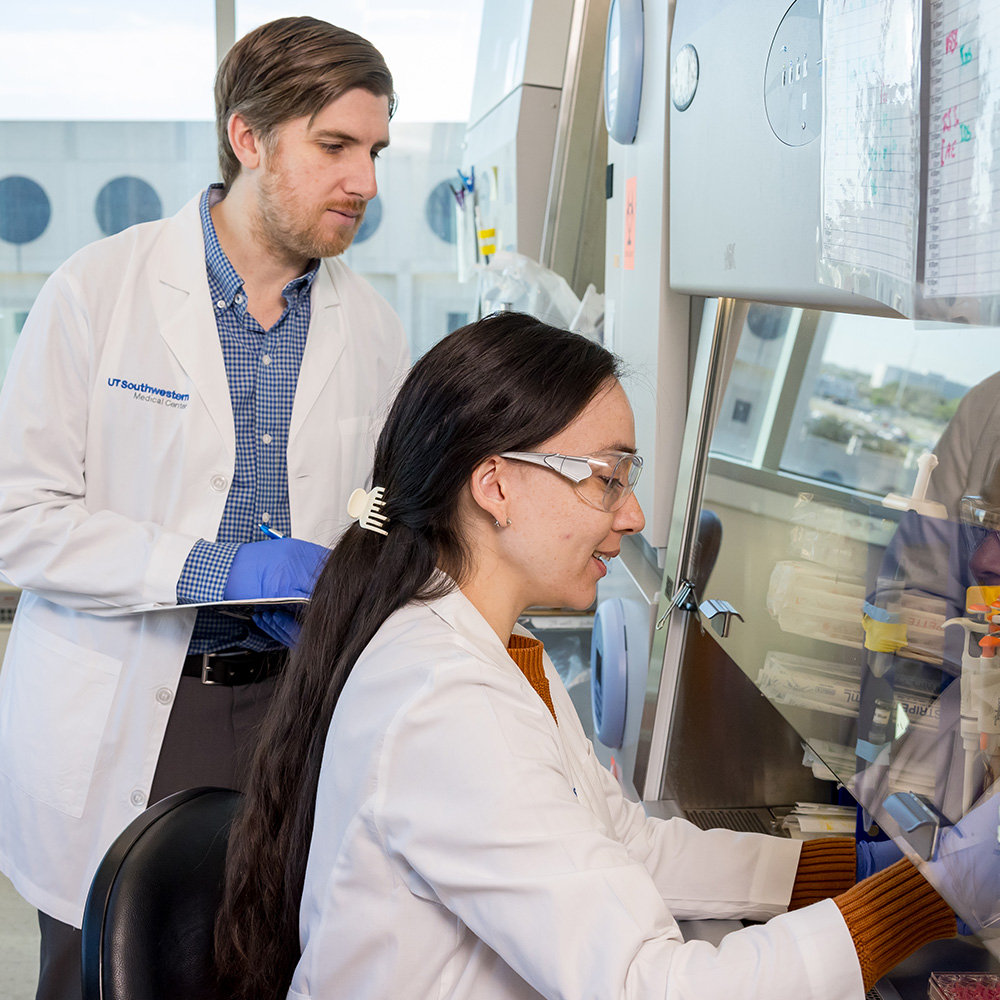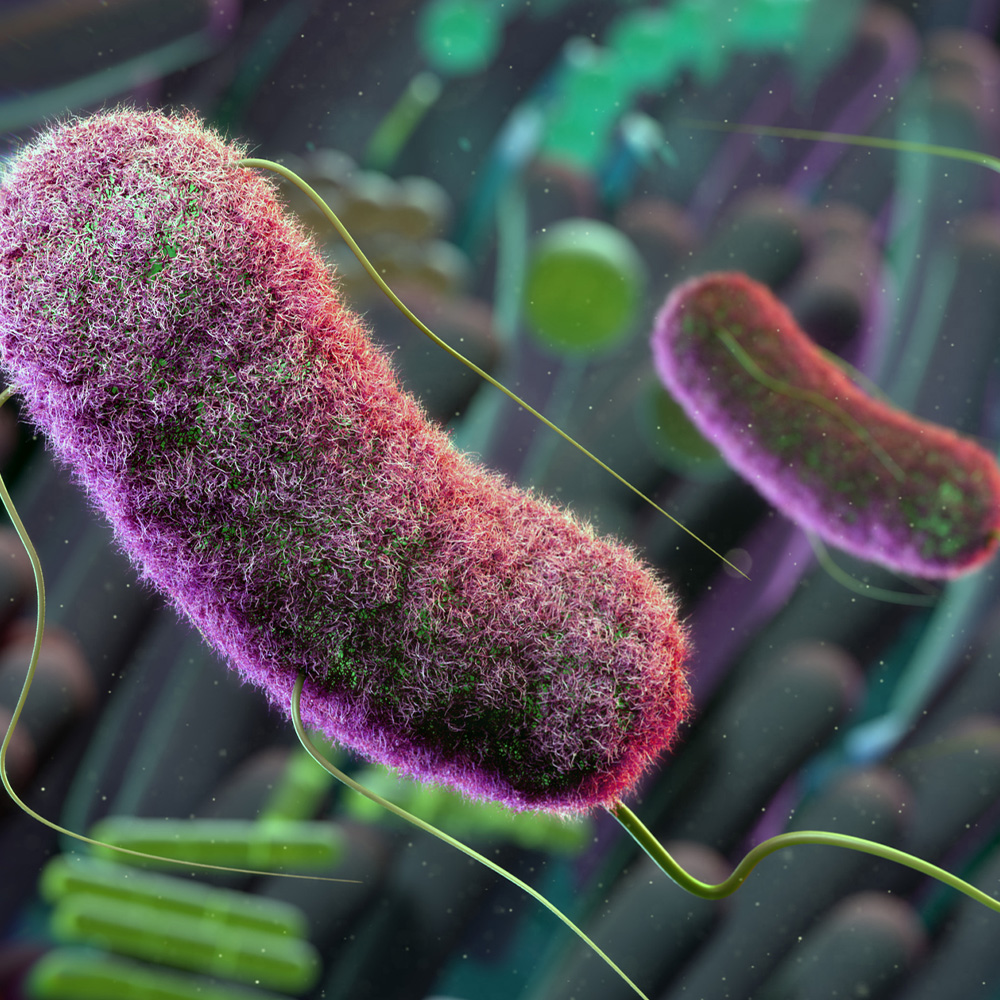Examining mitochondrial DNA may help identify unknown ancestry that influences breast cancer risk

DALLAS – September 20, 2016 – Genetic testing of mitochondrial DNA could reveal otherwise unknown ancestry that can influence a person’s risk for certain types of breast cancer, a new study finds.
UT Southwestern Medical Center cancer researchers studying mitochondrial DNA (mtDNA) in a group of triple negative breast cancer patients found that 13 percent of participants were unaware of ancestry that could influence their risk of cancer.
“We found 12 differences among 92 patients, a significant amount,” said lead author Dr. Roshni Rao, Director of the George N. Peters, M.D. Center for Breast Surgery at UT Southwestern.
“Some patients who self-identified as Hispanic had African-American ancestry. One Hispanic woman was found to be Ashkenazi Jewish. Both African Americans and some Ashkenazi Jewish populations have a higher risk for triple negative breast cancer,” said Dr. Rao, Associate Professor of Surgery and with the Harold C. Simmons Comprehensive Cancer Center.
Triple negative breast cancer is characterized by tumors that do not express receptors for estrogen, progesterone, or Her2-Neu, and accounts for about 15 to 20 percent of all breast cancer cases. This form of the disease is known to be particularly aggressive, and challenging to treat. Patients with triple negative breast cancer have a higher incidence of metastatic disease – cancer spreading to other parts of the body – and an overall higher rate of death from breast cancer, compared to patients with other types of breast cancer.
“This study is the first to perform mtDNA testing for self-described African-Americans, Caucasians and Hispanics with triple negative breast cancer and to identify unexpected mtDNA patterns,” said senior author Dr. Barbara Haley, Professor of Internal Medicine, who holds the Charles Cameron Sprague, M.D. Chair in Clinical Oncology. “It is estimated that 10 to 30 percent of Americans may not be aware of their mixed ancestry. This type of assessment has the potential to be informative for other cancers where we see ethnic differences in frequency without understanding the cause.”
Patients diagnosed with triple negative breast cancer tend to be younger and are more likely to be African-American or Hispanic. These patients may be less likely to be identified through traditional mammography screenings, which tend to target women 50 and older.
“If you know your ancestry, then you could be included in the group that gets screened at a younger age,” Dr. Rao said.
The researchers asked each volunteer – 31 African-Americans, 31 Caucasians, and 30 Hispanics who are triple negative breast cancer patients – to come in for a simple test, which collects cells from inside the cheek on a swab. Mitochondrial DNA was then isolated from these samples for comparison. Mitochondrial DNA differs from nuclear DNA because it is maternally inherited so it does not change or mix. Researchers can trace the lineage of mtDNA through multiple generations.
Among 30 Hispanic patients in this study, 22 did not have a family history of breast cancer whereas eight did. These results suggest that further genetic testing can potentially become an important step in identifying those at risk.
Additionally, those of Nigerian, Cameroon, and Sierre Leone ancestry were most strongly associated with triple negative breast cancer, an unexpected finding of this study. This association could indicate that ancestry from specific African countries may predispose an increased risk in the rate of triple negative breast cancer, which does not respond to standard breast cancer therapies, such as tamoxifen, aromatase inhibitors, or trastuzumab.
The study, which appears in the journal Cancer, was supported by Young Texans Against Cancer and the David M. Crowley Foundation.
Additional UT Southwestern researchers involved in the study include: Dr. Aeisha Rivers, Assistant Professor of Surgery; Dr. Assal Rahimi, Assistant Professor of Radiation Oncology; Dr. Rachel Wooldridge, Assistant Professor of Surgery; Dr. Madhu Rao, Research Associate; and Dr. Ann Marilyn Leitch, Professor of Surgery, who holds the S.T. Harris Family Distinguished Chair in Breast Surgery, in Honor of A. Marilyn Leitch, M.D.
The Harold C. Simmons Comprehensive Cancer Center is the only NCI-designated Comprehensive Cancer Center in North Texas and one of just 47 NCI-designated Comprehensive Cancer Centers in the nation. Simmons Cancer Center includes 13 major cancer care programs. In addition, the Center’s education and training programs support and develop the next generation of cancer researchers and clinicians. Simmons Cancer Center is among only 30 U.S. cancer research centers to be designated by the NCI as a National Clinical Trials Network Lead Academic Participating Site.
About UT Southwestern Medical Center
UT Southwestern, one of the premier academic medical centers in the nation, integrates pioneering biomedical research with exceptional clinical care and education. The institution’s faculty includes many distinguished members, including six who have been awarded Nobel Prizes since 1985. The faculty of almost 2,800 is responsible for groundbreaking medical advances and is committed to translating science-driven research quickly to new clinical treatments. UT Southwestern physicians provide medical care in about 80 specialties to more than 100,000 hospitalized patients and oversee approximately 2.2 million outpatient visits a year.
###
Media Contact: Lori Sundeen Soderbergh
214-648-3404
Email
To automatically receive news releases from UT Southwestern via email, subscribe at www.utsouthwestern.edu/receivenews




